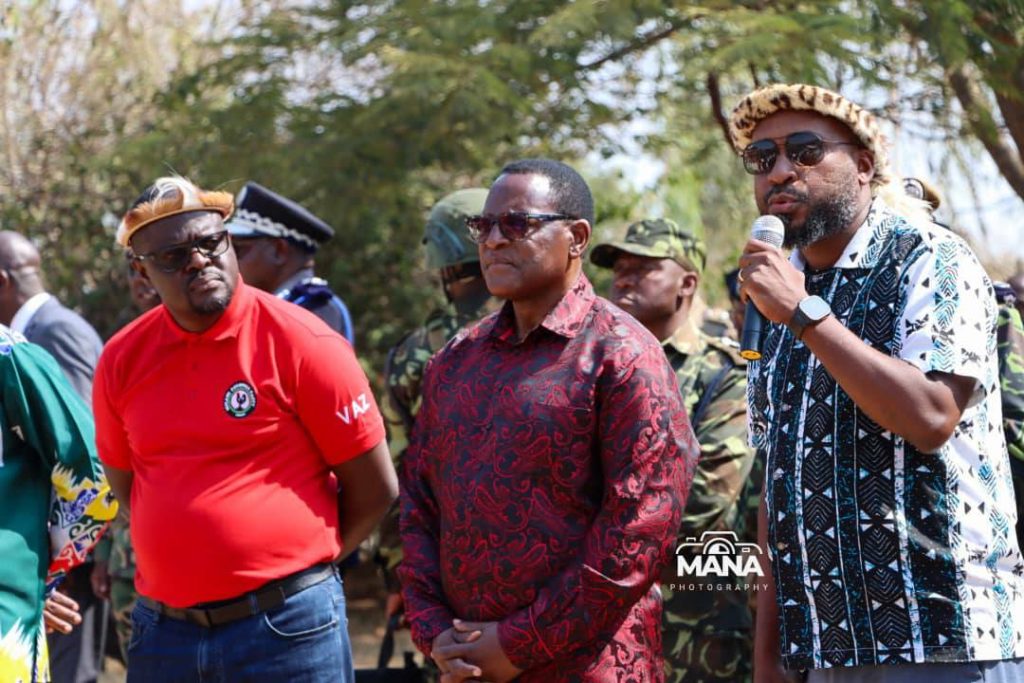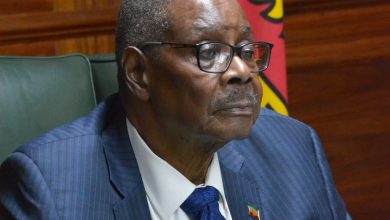Presidential candidates scramble for ‘North vote’
Presidential hopefuls have intensified their search for the ‘North vote’ in the September 16 General Election with at least three pairs this week camping in the region touted as a potential kingmaker.
Coincidentally, it is the three presidential candidates that have picked running mates from the Northern Region that are criss-crossing the region.

President Lazarus Chakwera, the presidential candidate for Malawi Congress Party (MCP), picked Minister of Trade and Industry Vitumbiko Mumba while UTM Party leader Dalitso Kabambe settled for Mathews Mtumbuka and former president Joyce Banda has her former vice-president Khumbo Kachali as running mate on a People’s Party (PP) ticket.
Mumba and Kachali are from Mzimba District while Mtumbuka is from Rumphi District.
On Sunday, Kabambe and Mtumbuka held a rally at Katoto ground in Mzuzu where Mtumbuka was introduced and he promised to develop the region.
Come Monday, Chakwera traversed parts of Mzimba before heading to Nkhata Bay on Tuesday and then back to the other side of Mzimba yesterday.
The areas the President and his running mate campaigned in yesterday; namely Euthini and Kafukule, were Mtumbuka’s destinations on Tuesday.
On Tuesday, Banda and Kachali were at Jenda in Mzimba while yesterday the pair invaded Mzuzu as Mtumbuka was in Rumphi, which is Chakwera’s destination today.
From the 7 200 905 registered voters, the Northern Region holds 12 percent or 895 806 voters while the South has 43 percent with 3 070 414 voters and the Centre 45 percent with 3 235 405 voters.
Commenting on the top of the tickets’ northern treks, governance analyst George Chaima said despite low registration of voters, all parties need the North and that the best strategy was to plant strong figures that can represent the region’s voice and command their votes.
On the other hand, he said United Democratic Front (UDF) president Atupele Muluzi’s concentration in the Eastern Region could be a deliberate attempt to divide votes for the opposition, especially Democratic Progressive Party (DPP) and PP, a situation that favours the current regime.
Gift Sambo, an expert in electoral and identity politics who teaches at the University of Malawi, said the situation stems from the fact that there is no party with deep roots in the North.
He said: “These parties will fight to maintain loyal voters in their respective strongholds while trying to attract unstable and undecided voters from the Northern Region. This will eventually turn the region into a fierce battle ground for votes involving major parties.”
Political analyst Ernest Thindwa observed that the North has since 2004 tended to disperse votes among parties with a chance to win an election, unlike other regions which since 1994 have tended to consistently and disproportionately vote for a particular party.
“There are indications to suggest the northern vote has acquired electoral significance in the context of the 50 percent-plus-one vote requirement,” he said.
Political pundit Wonderful Mkhutche said for parties such as MCP and DPP, who are guaranteed of the Central and Southern Region support, the Northern Region is the missing piece of the puzzle.
He noted that for UTM, it did well in the region in 2019 and this is an attempt to consolidate the support of the region, making it a go-to-area to seek support.
Former president Peter Mutharika, the DPP torchbearer, picked retired Justice of Appeal and former Malawi Electoral Commission (MEC) chairperson Jane Ansah as running mate while Atupele has Prophet Rex Kalolo as running mate. Both Ansah and Kalolo are from the Central Region’s Ntcheu and Lilongwe districts, respectively.





